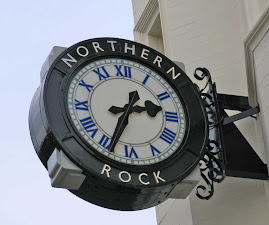Well he’s not really a banker at all, according to the latest figures from his Virgin Money group, which will soon be replacing the Northern Rock name on the high street.
Virgin Money is a credit card business run in association with MasterCard and real banks such as Bank of America and until recently, Royal bank of Scotland. For 2010 it had a turnover of £74m, on which it made a pre-tax profit of £42.5m. Its income from loan business was just £156,000.Virgin Bank, formerly Church House Trust, acquired for £13 million, plus the existing unit trust, ISA and insurance business, is to be found in Virgin Money Holdings (UK), the parent also of Virgin Money. Banking produced revenues of just £1.2 million last year out of £91 million. These were dwarfed by the credit card income and by £28 million from “investment and protection”.
Banking produced a first year loss of £2.7 million (Church House was acquired for its banking licence; Virgin deposits were previously held at RBS), whereas the group profit was £36.5 million. There were further losses of £12 million due in part to “building a retailing banking platform”. Virgin Bank is in effect a start-up, as indicated by a loan book of just £21 million and total banking assets of £134 million.
The main UK parent for the Branson bank is Virgin Financial Services UK Holdings. Its cash flow statement showed an outflow of cash from operating activities in 20120 of £75 million, plus another £11 million on capital expenditure and investment. That hole was largely filled by Branson’s American partner, financier Wilbur Ross, who injected £96.5 million in return for 22 per cent of Virgin Money Holdings.
The Ross investment came from America’s home grown tax haven, the state of Delaware. But then the Virgin banking business, including now Northern Rock, all goes back to the equally tax-efficient British Virgin Islands, and those Branson discretionary family trusts.
Does the lack of Virgin banking experience suggest that Northern Rock is seen more as an investment than a career, with the aim of selling off in part, via a flotation, or whole to a bigger rival sooner rather than later at a profit – unlike the government?
If anyone disputes the financial data we’d be happy to hear from them….
